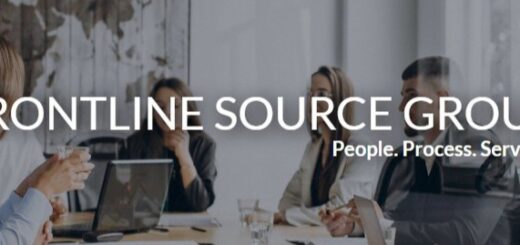The New $1.5M Mistake: How CEOs Avoid Costly Hiring Failures
The Value of Extensive Hiring Procedures It is impossible to overestimate the importance of a thorough hiring procedure in the competitive job market of today. As I work through the challenges of hiring, I’ve come to understand that an organization’s success is directly impacted by the caliber of its hires. In addition to assisting in the selection of candidates with the requisite skills, a thorough hiring process guarantees that the candidates share the company’s values & culture. In essence, I am creating the foundation for a successful and peaceful workplace when I devote time and resources to a thorough hiring process. We are currently hiring for various positions in our company.
Key Takeaways
- Thorough hiring processes are crucial for finding the right candidates and avoiding costly hiring mistakes.
- Identifying key traits and skills for success helps in selecting candidates who are the best fit for the role and the company.
- Behavioral interview techniques provide valuable insights into a candidate’s past behavior and potential future performance.
- Comprehensive reference checks are essential for verifying a candidate’s qualifications and ensuring they are a good fit for the organization.
- Assessing cultural fit and alignment with company values is important for long-term employee satisfaction and retention.
Also, a well-organized hiring procedure reduces the possibility of expensive hiring errors. Every hiring error can result in lower morale, higher employee attrition, and eventually, monetary losses. By taking the time to carefully screen applicants, I can steer clear of the problems that come with making snap decisions. In the long run, this strategy not only saves time and money, but it also builds dependability & trust inside the company. I am creating a team that will propel the business forward when I place a high priority on a comprehensive hiring process rather than merely filling positions.
distinct combinations of skills. A distinct set of skills is needed for each role, and it is my duty to identify the qualities that are necessary to succeed. For example, I might place more value on resilience and effective communication in a sales role than on problem-solving and attention to detail in a technical role. Soft Skills Are Important.
I’ve discovered that a candidate’s chances of success are greatly influenced by their soft skills in addition to their technical ones. Characteristics like flexibility, collaboration, & emotional intelligence can have a big impact on how well a person fits in with a team and advances the organization’s objectives. An all-encompassing method for evaluating candidates. When evaluating applicants, I try to see past their resumes and take into account how their character fits the requirements of the position.
By taking a comprehensive approach, I am able to find people who have the hard & soft skills required for sustained success. Behavioral interview techniques are among the most successful strategies I have used in my hiring process. This method concentrates on comprehending candidates’ prior handling of circumstances, offering important insights into their capacity for problem-solving and interpersonal interaction. I can assess candidates’ decision-making processes & thought processes by posing open-ended questions that encourage them to provide concrete examples from their experiences.
This method illuminates not only their abilities but also their personalities. For example, when I ask a candidate to explain a difficult project they oversaw, I’m not just interested in the result; I also want to know how they overcame challenges & worked with others. This realization enables me to evaluate whether they have the perseverance and collaboration abilities required for success in our company. By using behavioral interviewing techniques in my hiring process, I can choose applicants who are likely to succeed in their positions and make better decisions. As part of my dedication to rigorous hiring procedures, I give careful consideration to conducting extensive reference checks. Although interviews and resumes offer important details about a candidate’s qualifications, references give a third-party assessment of their dependability, work ethic, and interpersonal abilities.
My goal when contacting former employers or coworkers is to get information that will either support or contradict my first thoughts about the applicant. When conducting reference checks, I pose targeted questions about the applicant’s prior work performance. I might ask about their capacity to work with others, manage stress, or meet deadlines, for instance. I can present a more comprehensive picture of the candidate’s abilities thanks to this information, which is priceless.
Speaking with references who have had close contact with the applicant also helps me understand their areas of strength and growth, which helps me make a better hiring choice. I’ve found that determining a candidate’s cultural fit is equally as crucial as analyzing their abilities and credentials. A candidate’s chances of success are greatly reduced if they do not share the company’s values & culture, even if they have all the technical know-how needed for the position. In order to ascertain whether a candidate aligns with our corporate culture, I closely observe their attitudes, beliefs, and behaviors during interviews.
I frequently include questions that delve into a candidate’s values and motivations in order to aid in this assessment. For example, I might inquire about their ideal workplace or how they resolve disputes in a group setting. I can more accurately predict whether they will fit in with our company culture if I know what motivates them and how they relate to others. In the end, I have a better chance of creating a cohesive team that collaborates well to achieve shared objectives when I give cultural fit equal weight with expertise and experience. I’ve discovered that using tests and assessment tools in addition to conventional interviewing methods can greatly improve my hiring procedure.
These resources offer unbiased information that can support my subjective assessments in interviews. A candidate’s work style and interpersonal dynamics, for instance, can be revealed through personality tests, and their competence in particular job-related areas can be objectively measured through skills tests. My hiring decisions will be better supported by empirical data rather than just my instincts or gut feelings if I include these tests in my procedure. By using a data-driven approach, I am able to predict how candidates will perform in real-world situations in addition to identifying those who have the requisite skills. In the end, using assessment tools helps me improve my hiring procedure and raise the possibility of making good hires.
Clearly defining job descriptions and expectations early on is essential to a successful hiring process. Candidates are better able to determine whether they are a good fit for the position when they are aware of the duties and performance standards expected of them. When creating job descriptions, I try to be as detailed as I can about the abilities needed, the duties involved, & the position’s overall goals.
Clear job descriptions also assist in establishing reasonable expectations for employers & candidates. Candidates are less likely to become dissatisfied or disillusioned after they begin working if they are aware of what they are getting into. This openness encourages candid communication right away & establishes the groundwork for a productive working partnership. Putting an emphasis on job descriptions that are clear will help me draw in applicants who are sincere about the position and supportive of our company’s objectives. Last but not least, funding onboarding & training initiatives is one of the most important ways to guarantee new hires’ long-term success.
New hires are better able to adjust to their roles & comprehend the company culture when the onboarding process is well-structured. When creating onboarding programs, I put a lot of effort into giving new hires thorough training that gives them the tools & information they need to be successful. Along with job-specific training, I place a strong emphasis on onboarding opportunities for teamwork & fostering relationships within the company. I cultivate relationships between new hires and current staff members in order to establish a collaborative atmosphere.
Regular training opportunities also show my dedication to the advancement and development of my staff. New employees are more likely to stay motivated and involved in their jobs when they feel supported in their career path. In summary, creating a successful team that propels organizational growth requires a rigorous hiring procedure. I can develop a strong recruitment strategy that draws in top talent while lowering turnover rates by identifying the essential qualities and abilities for success, using behavioral interviewing techniques, conducting thorough reference checks, evaluating cultural fit, utilizing assessment tools, creating clear job descriptions, and allocating funds for onboarding and training initiatives. In the end, by giving these factors top priority during the hiring process, I am influencing my company’s future rather than merely filling jobs.
In a related article from Frontline Source Group’s CEO Blog, “3 Keys to Business Success from Frontline Source Group’s Founder and CEO,” the importance of effective leadership and strategic decision-making is highlighted. This article provides valuable insights into how CEOs can steer their companies towards success by focusing on key principles such as transparency, communication, and adaptability. By incorporating these principles into their hiring processes, CEOs can avoid costly mistakes and ensure the long-term success of their organizations. To read more about this topic, visit here.
FAQs
What are some common hiring mistakes that CEOs make?
Some common hiring mistakes that CEOs make include rushing the hiring process, not thoroughly vetting candidates, and not clearly defining the role and expectations for the new hire.
How can CEOs avoid costly hiring failures?
CEOs can avoid costly hiring failures by taking the time to thoroughly vet candidates, clearly defining the role and expectations, and involving key stakeholders in the hiring process.
What are the potential costs of a hiring failure?
The potential costs of a hiring failure can include the direct costs of recruiting and onboarding a new hire, as well as the indirect costs of lost productivity, team morale, and potential damage to the company’s reputation.
What strategies can CEOs use to prevent hiring mistakes?
CEOs can prevent hiring mistakes by implementing strategies such as conducting thorough interviews, checking references, and utilizing assessment tools to evaluate candidates’ skills and fit for the role.
How important is it for CEOs to involve key stakeholders in the hiring process?
Involving key stakeholders in the hiring process is important for ensuring that the new hire will be a good fit for the team and the organization as a whole. It can also help to gain different perspectives and insights on the candidate.




